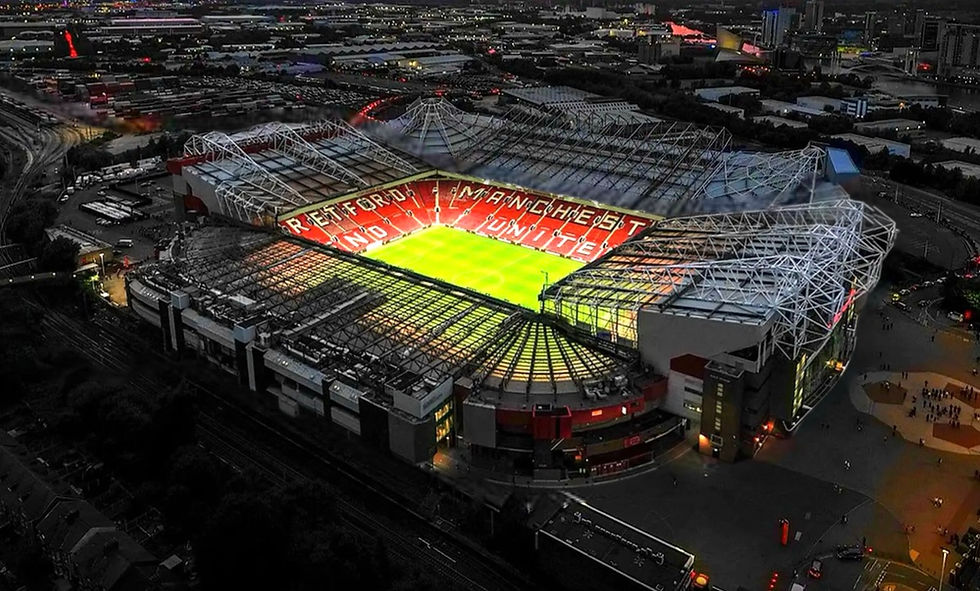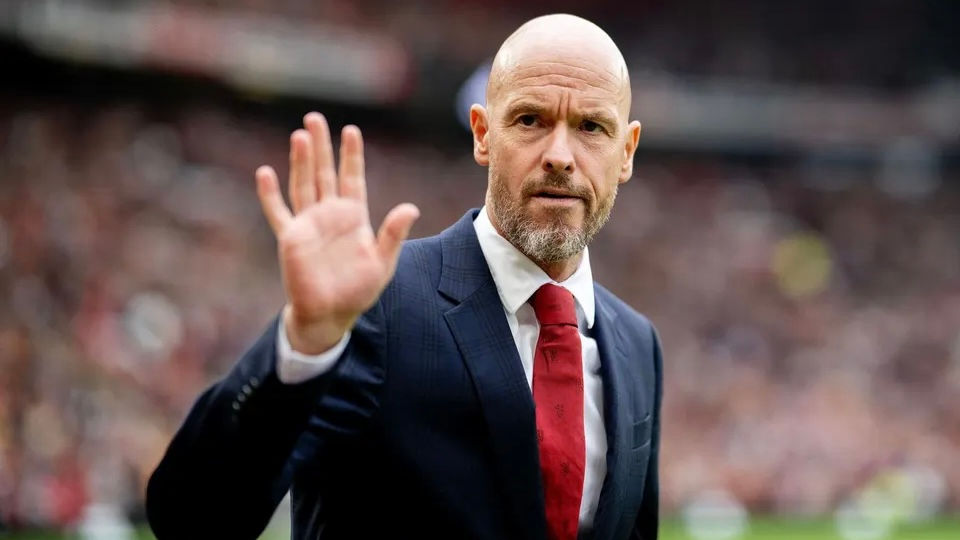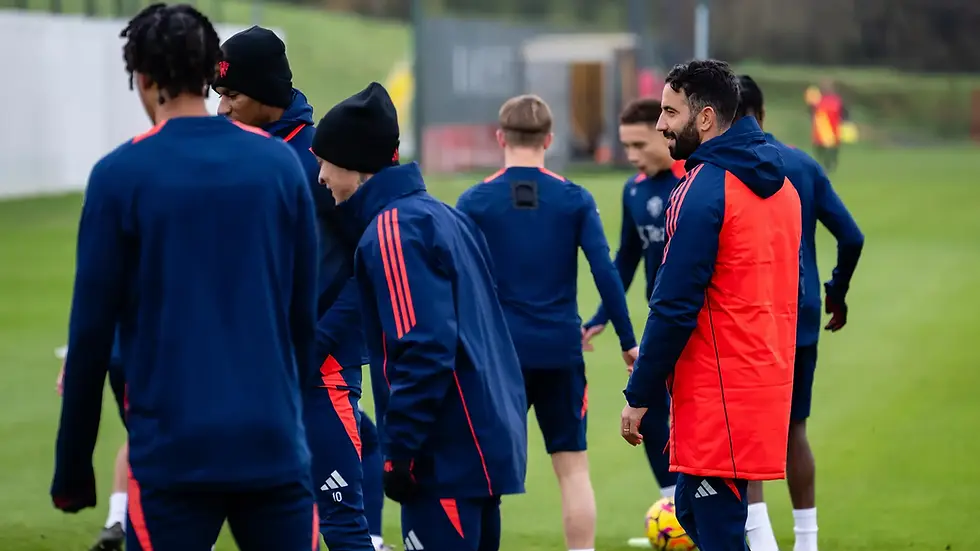Manchester United in Tactical Limbo: Can Amorim Restore Identity?
- Myles Campbell
- Jul 1, 2025
- 2 min read

Fans and pundits alike question whether the club even has a defined style of play. This uncertainty has weighed heavily on their last two managers: Erik ten Hag and Rúben Amorim.
The last time United had a recognisable identity was under Ole Gunnar Solskjær.

Drawing on his experiences as a player under Sir Alex Ferguson, Solskjær revived the fast-paced, counter-attacking football that had long been a hallmark at Old Trafford. This approach had faded from the appointment of Moyes to the sacking of Mourinho.
When Ten Hag arrived, United had finished sixth the previous season amid a toxic atmosphere.

Interim coach Ralf Rangnick called for “open-heart surgery” to revive the club. There was cautious optimism, with Cristiano Ronaldo staying and the Glazers investing £214 million in new players. Fresh from winning the Eredivisie with Ajax, Ten Hag aimed to implement a similar style at United: building from the back, high pressing, ball retention, and positional rotation—elements of the renowned “total football.”
His first season appeared promising: a Carabao Cup win and a third-place league finish secured Champions League qualification. But the fluid, dominant style seen at Ajax never fully materialised at Old Trafford.
In the second season, Ten Hag’s vision unravelled. Despite significant spending, poor recruitment and the Premier League’s intensity disrupted his plans. The team lost tactical coherence.

Jamie Carragher famously said after a 3–0 home defeat to Manchester City, “No one can explain what Manchester United try and do in terms of how they play.”
Injuries and a thin squad forced a tactical shift. United often sat deep in a low block, relying on counter-attacks. This yielded occasional big wins—like the FA Cup victory over Liverpool—but lacked consistency. United finished eighth, missing out on Champions League football by eight points.
Still, the FA Cup triumph over Pep Guardiola’s City provided a silver lining and Europa League qualification. Yet, the club’s poor start to the next season—only eight points from seven matches, their worst since 1989–90—led to Ten Hag’s dismissal after a 2–1 loss at West Ham.

Enter Rúben Amorim, a young, progressive coach celebrated for guiding Sporting Lisbon to their first Portuguese league title in 19 years, losing just once in 34 matches and winning three consecutive League Cups.
Amorim’s preferred setup is a 3-4-3 formation, emphasising structured play from the back. His three centre-backs act as pivots, initiating attacks. The midfield employs a double pivot for control, while wing-backs provide crucial width in both attack and defence. Up front, two inside forwards rotate fluidly around a dedicated striker—a profile United have long sought.
Adapting this system mid-season proved difficult. United slumped to 15th—their worst top-flight finish since 1973–74. Yet, there were signs of progress. In the Europa League, a dramatic 121st-minute winner by Harry Maguire against Lyon rekindled “Fergie time” nostalgia and lifted spirits at Old Trafford.

Despite the tactical struggles, Amorim stood firm on his philosophy: “If I change it all the time, it is going to be even worse.”
It’s clear United have yet to fully embrace a consistent tactical identity. But with strong backing in upcoming transfer windows and a full pre-season to instil his ideas,

Amorim’s structured, modern approach could finally restore clarity and success to Old Trafford.






Comments